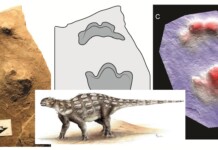
Growing up in Sierra Leone, a young man who saw a problem and was determined to fix it has been awarded international prizes for excellence in innovation.
Jeremiah Thoronka invented a machine that delivers electricity to homes through absorbing kinetic energy from vehicles passing over roadways. The device powers 150 small homes, doesn’t rely on changing weather patterns, and needs no battery or external power infrastructure.
Out of 3,500 contestants, Thoronka picked up the $100,000 reward for his work at the Chegg.org Global Student Prize 2021. He also won the regional top student award from Commonwealth.org, and another £3,000 ($4,000) to go with it.
Hollywood mega from Down Under, Hugh Jackman, presented the award virtually, saying, “You’ve made an enormous difference to your community and far beyond. I’m sure that you will now use this incredible platform to make an even bigger impact.”
“It’s amazing, it’s wonderful. Words can’t express how I feel about this,” Thoronka was quoted as saying.
Sierra Leone has some of the least-established and least-reliable power grids on Earth, with only 26% of people having access to electricity. As a pupil, Thoronka describes seeing students fall behind who did not have adequate access to lighting in their homes for studying after dark.
MORE: Winner of 2021 Dyson Award Goes to First Ever Device to Monitor Glaucoma Symptoms From Home
At 17 he launched his startup, Optim Energy, to power homes via kinetic energy transfer. Once buried under a road it converts heat, pressure, and movement into electric currents without anyone being aware of it.
“I wanted to develop a more sustainable energy system, educate people about energy efficiency and stop their overuse of natural resources,” he told the BBC in a feature piece. “The Sun is not always shining, water is drying up, fossil fuels are not always going to be used, but people are always moving.”
RELATED: Tiny Wind Turbine That Generates Power From Your Apartment Balcony Wins Award
At a pilot program in Thoronka’s hometown of Makawo, Optim Energy successfully deployed two devices which powered 150 nearby homes and 15 schools, totaling services to more than 10,000 people, 9,000 of whom were students. He is currently looking to expand into the healthcare sector, presumably utilizing the busy roads and walkways near hospitals to generate required power for vaccine refrigeration.
“The device will mean more time for children to study and be digitally included in what is happening in the world, as well as the support of other economic activities which are desperately needed to move the country forward,” said Winnie Muchina from the African Leadership University in Rwanda.
(WATCH Thoronka receive his award below. )
(LEARN more about Thoronka’s innovation in this video.)
SHARE This Youth’s Story of Excellence With Others…





















Readers aren’t told that these piezoelectric generators were invented by two French physicists, Jacques and Pierre Curie in 1880. The piezoelectric generators have been installed in Europe and Japan roads for more than 12 years, so this technology was not invented by that student. Another fact missing is that there are very few cars or trucks traveling the city streets in Sierra Leone at night, which is when the lights need to be on for students to read. The students should build methane generators that produce gas from human and animal waste; the gas can be burned to provide steam energy for electric turbines 24 hours a day.